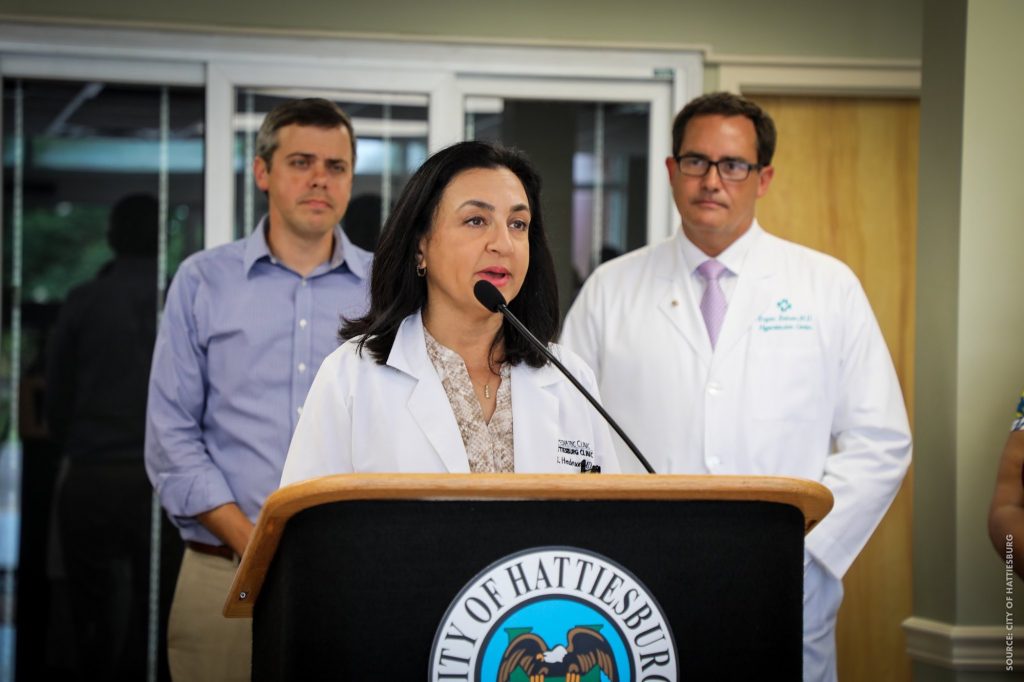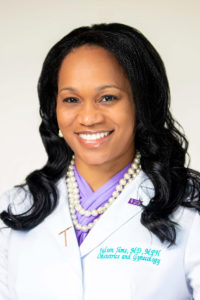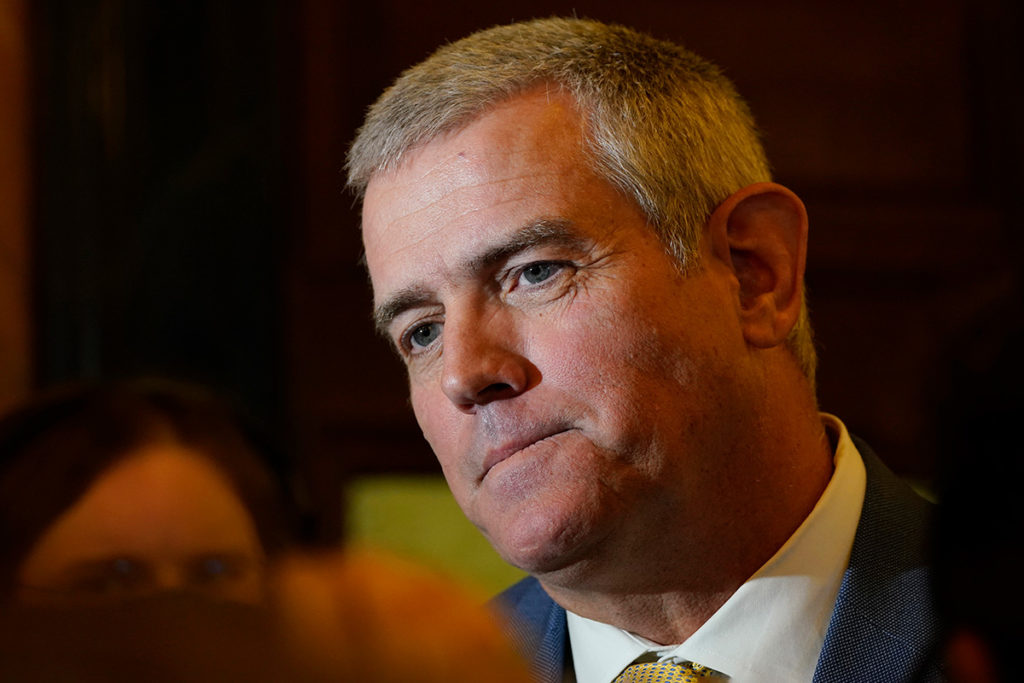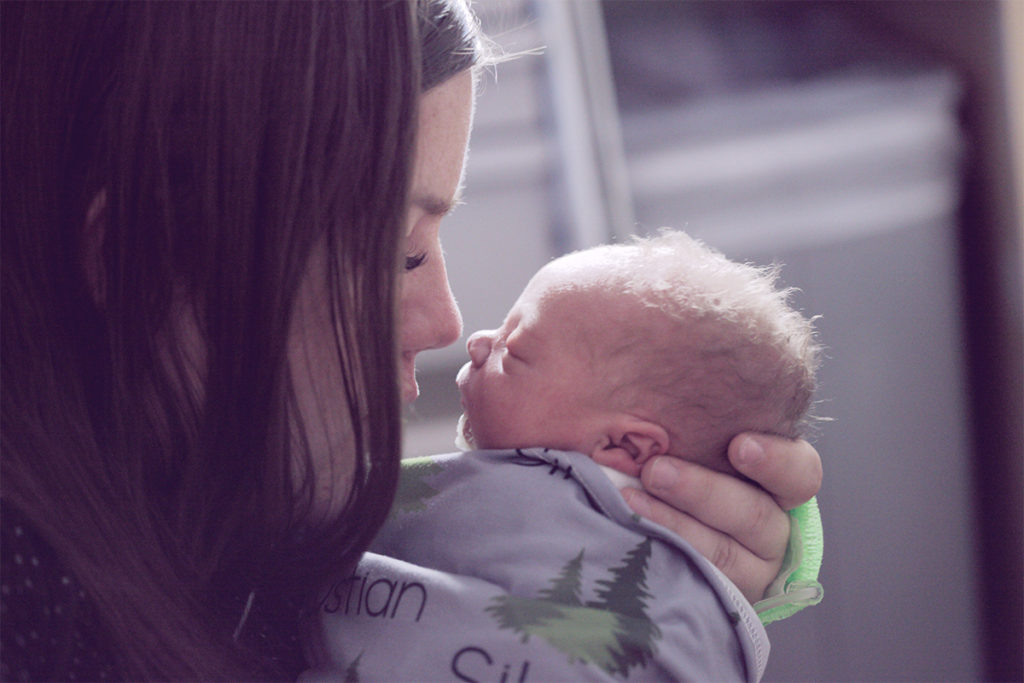Dr. Anita Henderson has her work cut out for her. The health of mothers and babies is her professional concern, and Mississippi remains the most dangerous state for both by virtually every metric.
“We have to start the conversation about infant and maternal health by looking at the data of where we are in Mississippi,” Henderson, president of the Mississippi Chapter of the American Academy of Pediatrics, told the Mississippi Free Press in an interview. “We are number one in the nation in our infant-mortality rate, number one in the nation in our preterm birth rate. We’re number one in the nation in our low birth-weight rate.”
Her ranking is accurate—and it has been this way for years. A new Centers for Disease Control report confirms that Mississippi still leads the nation in preterm births. In 2021, just under 15% of all births in the state were pre-term. Only around 11% of all births were classified as “late preterm,” giving Mississippi the highest rate of moderate or early preterm births as well.
Convincing the public to accept that knowledge, and the urgent need it entails, is Henderson’s first task. “You start by finding out where you are. Then you figure out how we got there,” she said.

One unavoidable conclusion is that Mississippi’s infant health crisis is, ultimately, a maternal-health crisis. “It starts with the mother. Mothers who are healthy, who have access to health care, are more likely to have healthy babies,” Henderson added.
A record number of mothers in Mississippi are neither healthy nor do they regularly receive health care. “We don’t have a pediatrician in every county. We don’t have an OB-GYN in every county. Look at the March of Dimes and CDC data: about half of Mississippi’s counties do not have an OB-GYN, and about half do not have a pediatrician,” Henderson explained. “I have patients who are traveling, routinely, an hour to come and see me. I have moms traveling over an hour to see their OB-GYN.”
There is little hope for improvement without preventative health care and the early interventions that regular treatment can provide. “We have to find ways to attract physicians to our state,” Henderson continued. “We have to find a way to keep the hospitals that we have, to keep the delivering hospitals that we have. And we have to find a way to expand those services.”
‘Why Didn’t You See Me Sooner?’
Mississippi’s health ecosystem cannot be understood without considering health insurance. Dr. Jaleen Sims sees that struggle firsthand in her work at Jackson-Hinds Comprehensive Health Center, a federally qualified health center. FQHCs provide low- and no-cost health services to low-income adults, often operating in health care deserts: the last line of defense for community health in many underserved locations around the country.
Sims, an OB-GYN who is also the co-chair for the Diversity, Equity, Inclusion Task Force at the University of Mississippi Medical Center, told the Mississippi Free Press in an interview that she sees countless late-term patients in serious need of prenatal care. “What I have learned when I talk to them and ask ‘hey, why didn’t you come see me sooner,’ (is usually) ‘I didn’t know that I could come here without my insurance.’”
The enormous, prohibitive expense of health care in the U.S. makes that an understandable belief. “That is the case for some private practices,” Sims acknowledged. “(Often) it’s several hundred dollars out of pocket just to enter prenatal care early,” to say nothing of the cost of an actual intervention, if one is necessary.

March of Dimes data show that the health disparities prevalent in Mississippi are clearly visible in its infant and maternal health outcomes as well. Between 2018 and 2020, 17.4% of all Black births were pre-term, compared to 12.2% for white births. A map of preterm birth data shows many of the most significantly affected counties lie in heavily Black regions of the state, like the Delta. The same dataset showed the highest rates of preterm birth—roughly 20% of all births—in Issaquena, Coahoma and Claiborne counties.
Sims can map out a healthy pregnancy with ease. It starts with a pre-existing relationship with the patient, who she can guide toward preventative health long before the birth. “If you’re a premenopausal person, especially if you’re not on contraception, we know that you can get pregnant anytime. We can have it in the back of our minds, to assess, to schedule follow-ups, to get them ready,” she said.
Tobacco cessation, as well as diabetes and hypertension prevention, are the premier examples of pre-pregnancy interventions that can severely reduce the rate of low birth weight, premature birth and other complications. But once those issues are identified, rapid treatment is often necessary.
The Question of Denied Medicaid Expansion
All the medical experts the Mississippi Free Press talked to for this report independently raised the question of Medicaid access, including piecemeal extensions that could directly target mothers and babies for improved access to care.
Henderson said that pregnancy data highlight the dire state of health care in Mississippi. “In many instances, pregnancy is the only time some of these women have health-care coverage.” A majority of the state’s pregnancies already rely upon the program. “Sixty-five percent of all babies born in Mississippi are born to mothers on Medicaid,” Henderson explained.
Birth is often only the beginning of pregnancy’s various health complications, even if for many it signals a swift end to their only encounters with health care. “Those moms who deliver traditionally lose their health care after two months,” Henderson said, “but their hypertension doesn’t go away, their diabetes doesn’t go away, their asthma doesn’t go away. So if we are looking at ways to improve the health of babies, we have to look at ways we can improve the health of their moms: before, during and after pregnancy.”
Again and again, the maternal-health experts highlighted the value of health-care access prior to pregnancy. “One of our issues with the moms on Medicaid is that when they become pregnant, and qualify for Medicaid, it can take them up to a month to actually get that first Medicaid visit,” Henderson explained.
That lost time, often taking place in the middle months of pregnancy, is critical. “You’ve lost a month from knowing you’re pregnant to even getting in to see an OB-GYN, to getting labs drawn, screening tests, prenatal vitamins,” she continued.
Sims highlighted the barrage of interventions that may be needed after that critical first visit. “If someone has preeclampsia with pulmonary edema, they’re going to need a follow-up, potentially with a cardiologist … If, say, their blood pressure continues to stay high, and we’re diagnosing them with new onset hypertension caused by that preeclampsia, we’re going to need to continue following them with someone who can monitor that.”
More Republicans Supporting Postpartum Extension
Thus far, progress on extending care to Mississippians before, during and after pregnancy has been frustratingly elusive.
“We really got so close this year with postpartum (Medicaid extension), and it passed overwhelmingly: the House Medicaid committee passed it, but (House Speaker Philip Gunn, R-Clinton) did not allow it to be brought up,” Henderson said.

Gunn has consistently maintained that the postpartum Medicaid extension constitutes “Medicaid expansion,” a line that many in Mississippi’s GOP leadership are unwilling to cross. “As I’ve said very publicly, I’m opposed to Medicaid expansion,” Gunn said during the most recent session. “We need to look for ways to keep people off, not put them on.”
But the advocates for extension in the health-care community have made significant inroads in building support for the postpartum extension, with Senate Medicaid Chairman Kevin Blackwell, R-Southaven, fully on board. Lt. Gov. Delbert Hosemann, a Republican, has indicated his support as well.
“It’s a priority for a number of lawmakers in Mississippi,” Henderson said. “We’re going to have hearings, hopefully this summer and this fall, about postpartum care to help educate the public and our lawmakers.”
Health insurance is only a piece of what the medical professionals hope to expand. That support, they explain, is part of the foundation upon which greater access can be accomplished. Henderson understands that some barriers are physical: a lack of health clinics, hospitals and providers prevents the ongoing relationship critical to well-being.
“If you are a mom with high blood pressure, you can’t just go to the doctor every week, Henderson said. “If your doctor is an hour away, or if you’re having to take off half a day of work, or if you’re having to pay for gas or transportation or childcare. Having those maternity deserts limits mothers’ ability to keep those chronic conditions under control.”
Sims agrees, explaining that there is no replacement for a relationship with a trusted health-care provider. “Once you build a really healthy, strong patient-physician relationship, you can convince patients to do all kinds of things that can better their health,” Sims said.









